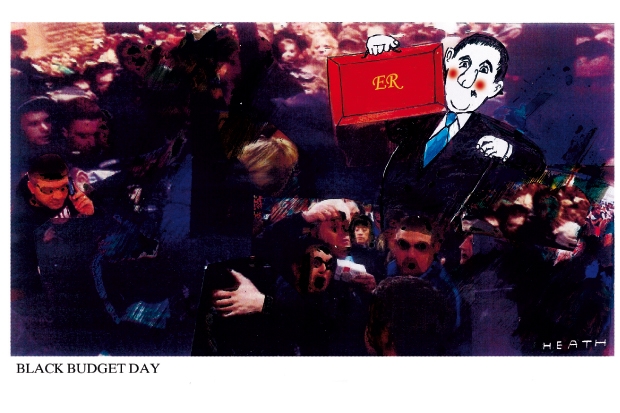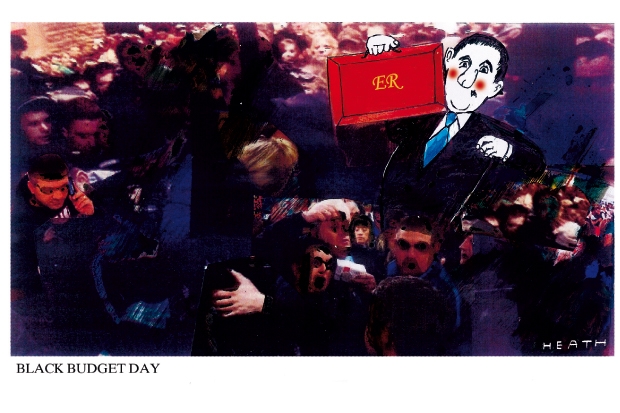As for the personal allowance, which will increase to £11,500 in April 2017, Simon Whiteside, tax executive director at EY, the global professional services firm, said: ‘Many basic rate taxpayers will benefit from the increase to the personal allowance. However, for the lowest paid the personal allowance is already pitched above their earnings – an increase in the National Insurance thresholds would have had a more significant impact on their wallets.’
Savings
In a Budget with few shock measures, the unveiling of a Lifetime ISA took everyone by surprise. Already being dubbed a ‘LISA’, the new product will be launched next April to help people aged 18 to 40 get a foot on the housing ladder, without hindering their efforts to put aside money for their pension. It can be invested in stocks and shares or cash savings, and savers can tap into their bonus pot if they use some or all of the money to buy their first home, or wait until they are 60 to withdraw cash and their bonus tax-free. It works like this: the under 40s can save up to £4,000 a year to get a maximum £1,000 bonus from the government, with a £1 top-up for every £4 that they save. They will get this for every year that they save money until age 50.
Some experts believe this may signal the end of pensions. Tim Fussell, partner at accountancy firm Moore Stephens, said: ‘Lifetime ISAs could effectively replace much of the current pensions infrastructure. Stiff penalties for early withdrawals will encourage savers to keep their money in the scheme. Using the scheme in lieu of a pension pot removes a lot of the complications and charges around pensions freedom.’
Bruce Davis, joint managing director of Abundance, a peer-to-peer investment platform, said: ‘The LISA initiative is a welcome boost for millennials who have long been short-changed by the financial services industry. But there are plenty of investors under 40 who would be better off in a pension with higher rate tax relief and many younger employees auto-enrolled into a pension by their employer will face some tricky decisions to choose between employer contributions or easier access via a LISA.’
Insurance Premium Tax
Amid fears that Insurance Premium Tax (IPT) would be hiked to 12.5 per cent, the Chancellor announced a 0.5 per cent increase to 10 per cent. This will generate £700 million and be spent on flood defences.
Despite the smaller than expected rise, insurers were less than impressed. ‘A further increase in IPT is disappointing news,’ said a spokesman for the Association of British Insurers. ‘Increased investment in flood defences is vital but should be part of core government expenditure, not an afterthought paid for by raising taxes on people and businesses who do the responsible thing in protecting themselves through insurance.’
However, Paul Geddes, chief executive of Direct Line Group, said: ‘While a further increase in IPT could be an additional increase to household finances, we are pleased that the government has committed to use the spend on flood defences, as the storms at the end of 2015 were another reminder that more needs to be done in this area to protect the homes that are at a high risk of flooding.’
Fuel duty
A certain crowd-pleaser, the Chancellor froze fuel duty for the sixth consecutive year – an annual saving for the average driver of £75. RAC chief engineer David Bizley said: ‘Motorists will be relieved that the Chancellor has not used low fuel prices as an opportunity to raise duty on petrol and diesel to help reduce the deficit. But with the government’s own evidence showing that lower fuel prices are good for the economy, we are disappointed Mr Osborne didn’t make a longer-term commitment to freeze duty beyond next year’s Budget.’
Stamp duty
In a blow to some buy-to-let landlords, the Chancellor abandoned plans to exempt ‘significant investors’ from the imminent extra 3 per cent stamp duty charge on additional property purchases and snubbed them in a capital gains tax cut (CGT will be cut in the next tax year but there will be no change for properties). From April, anyone purchasing an extra property will have to pay an extra 3 per cent stamp duty. Earlier proposals would have meant that companies and individuals buying more than 15 properties were exempt.
Jeremy Leaf, former chairman of the Royal Institution of Chartered Surveyors, commented: ‘As it stood, the 3 per cent stamp duty hike from April unfairly favoured large investors at the expense of smaller landlords. In announcing that the new stamp duty rates on additional properties will apply to larger investors too, the Chancellor has balanced it so it is not helping either group, but in doing so he compromises the chances of improving supply.’






Comments